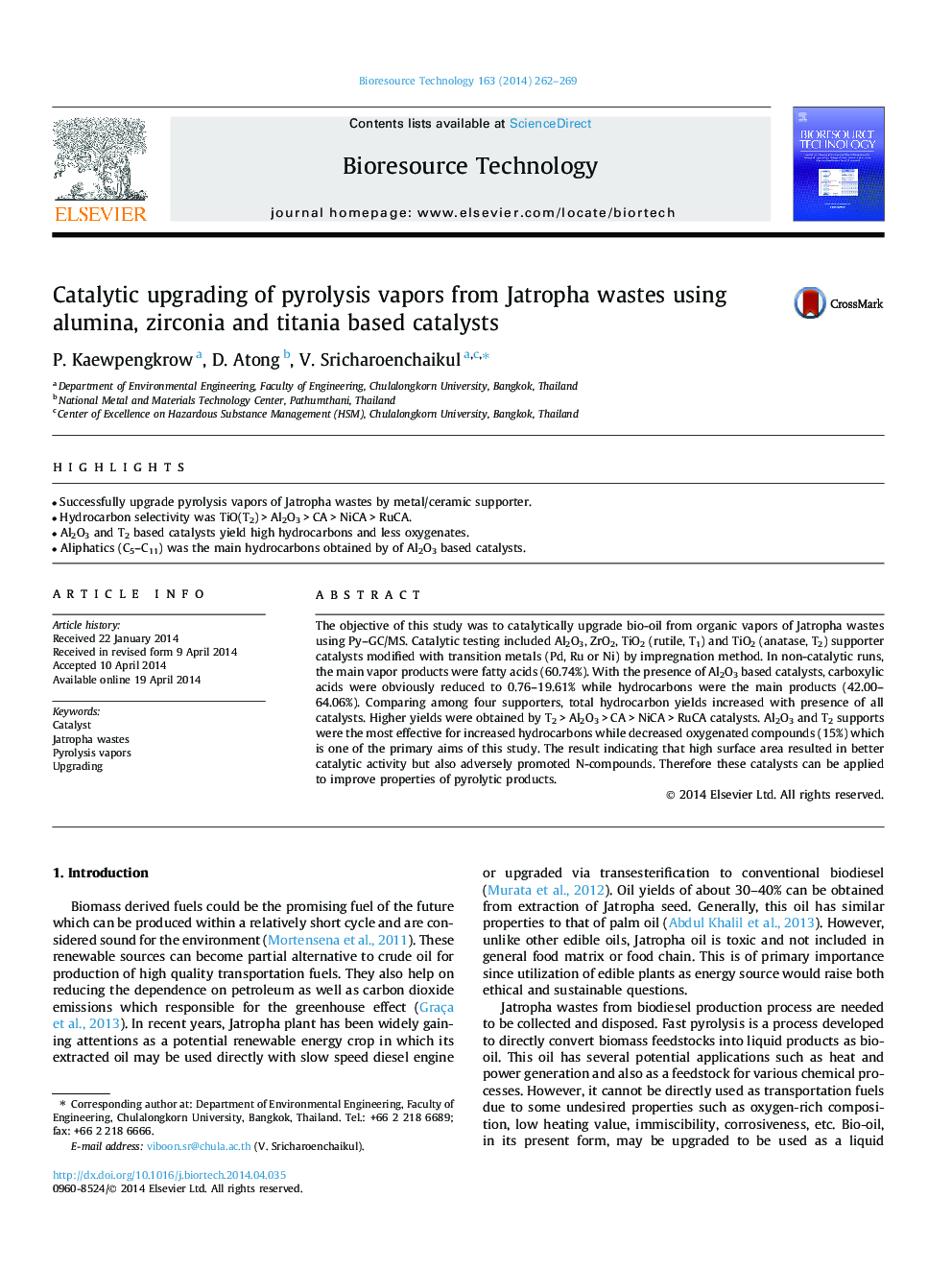| Article ID | Journal | Published Year | Pages | File Type |
|---|---|---|---|---|
| 680887 | Bioresource Technology | 2014 | 8 Pages |
•Successfully upgrade pyrolysis vapors of Jatropha wastes by metal/ceramic supporter.•Hydrocarbon selectivity was TiO(T2) > Al2O3 > CA > NiCA > RuCA.•Al2O3 and T2 based catalysts yield high hydrocarbons and less oxygenates.•Aliphatics (C5–C11) was the main hydrocarbons obtained by of Al2O3 based catalysts.
The objective of this study was to catalytically upgrade bio-oil from organic vapors of Jatropha wastes using Py–GC/MS. Catalytic testing included Al2O3, ZrO2, TiO2 (rutile, T1) and TiO2 (anatase, T2) supporter catalysts modified with transition metals (Pd, Ru or Ni) by impregnation method. In non-catalytic runs, the main vapor products were fatty acids (60.74%). With the presence of Al2O3 based catalysts, carboxylic acids were obviously reduced to 0.76–19.61% while hydrocarbons were the main products (42.00–64.06%). Comparing among four supporters, total hydrocarbon yields increased with presence of all catalysts. Higher yields were obtained by T2 > Al2O3 > CA > NiCA > RuCA catalysts. Al2O3 and T2 supports were the most effective for increased hydrocarbons while decreased oxygenated compounds (15%) which is one of the primary aims of this study. The result indicating that high surface area resulted in better catalytic activity but also adversely promoted N-compounds. Therefore these catalysts can be applied to improve properties of pyrolytic products.
